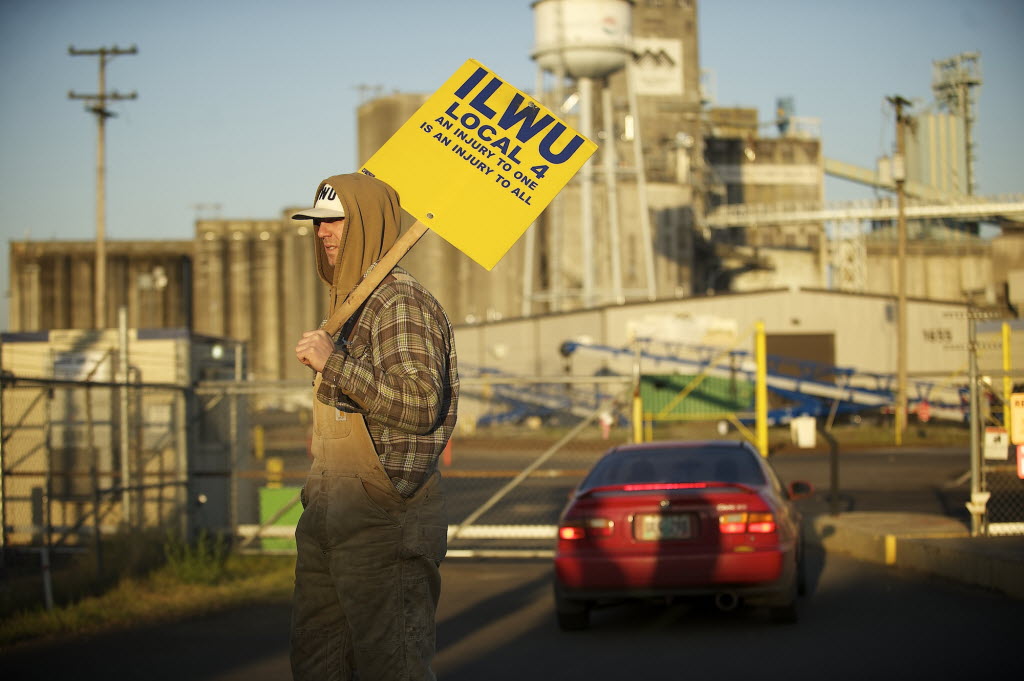In their long-running contract dispute, the International Longshore and Warehouse Union and United Grain Corp. at the Port of Vancouver agree on at least one thing: The National Labor Relations Board’s allegations that both sides have engaged in unfair labor practices are off base.
In written responses to the NLRB, attorneys for the ILWU and United Grain deny accusations lodged against the two parties in separate consolidated complaints filed by the federal agency in February. The NLRB issued the complaints after it investigated unfair labor practice charges filed by the union and the company against each other in a battle that intensified in February 2013, when United Grain locked out as many as 44 union dockworkers.
Meanwhile, United Grain and the Longshore union confirmed Wednesday they remain at the bargaining table in hopes of resolving a dispute that’s part of a larger conflict between Northwest grain terminal operators and union dockworkers. Also on Wednesday, the company filed another unfair labor practice charge against the Longshore union’s Vancouver Local 4.
Jennifer Sargent, spokeswoman for the ILWU, said negotiations continue. Pat McCormick, spokesman for the Pacific Northwest Grain Handlers Association — whose membership includes United Grain — said “negotiations are scheduled and we expect those negotiations to occur in the presence of a federal mediator.”




